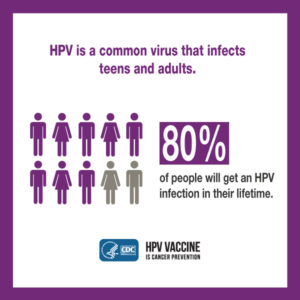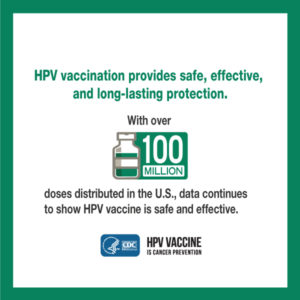Human papillomavirus, or HPV, is common and according to the Centers for Disease Control, “almost every person who is sexually active will acquire HPV at some time in their life without HPV vaccination.” The virus is transmitted through intimate skin-to-skin contact. While most HPV infections go away on their own, some can lead to cancer. The CDC states that in the United States each year, nearly 34,000 women and men are diagnosed with a cancer caused by HPV infection and 90% of those could’ve been prevented by an HPV vaccination.
Washington County Public Health Nurse Lynn Fisher explains who should be getting the vaccine, “The vaccine is intended for both males and females, both boys and girls. We can start, CDC says we can start giving it at nine years old. Typically we start at 11, pre-teen that’s the most important to start giving the vaccine before the child is exposed to the virus. That’s what we always try to do with all of our vaccines is give the vaccine before they’re exposed to the vaccine. Same thing with the HPV vaccine. Typically we start at 11 years old, but certainly talk to your provider and pick a date that is satisfactory for everyone.” She adds that if it is given before 15-years-old then only two doses are needed, otherwise three are needed to boost the immunity.
Talk to your primary care provider for more information about the vaccine. Fisher adds, in addition to getting the vaccine, practice safe sex and have regular health care visits and screenings. There have been over 100 million doses of the vaccine distributed in the U.S.



